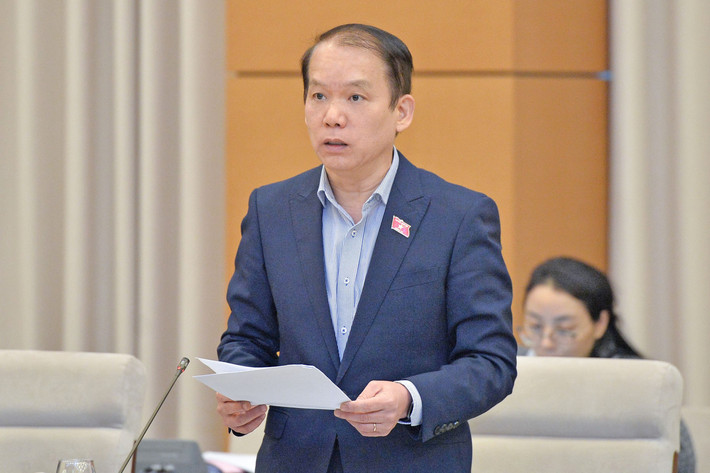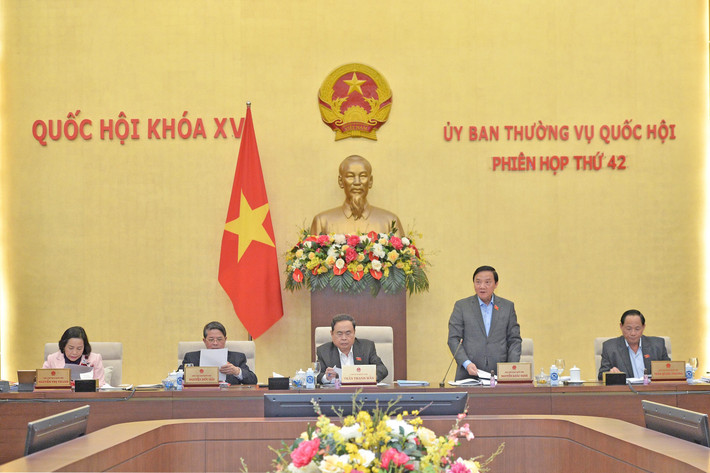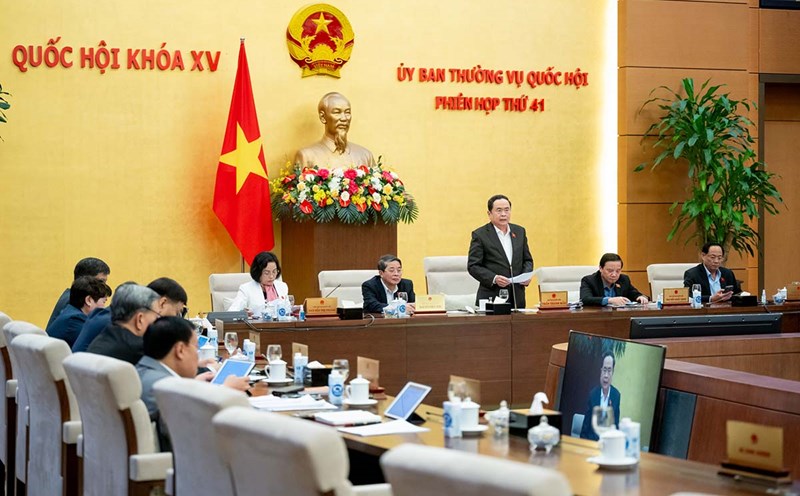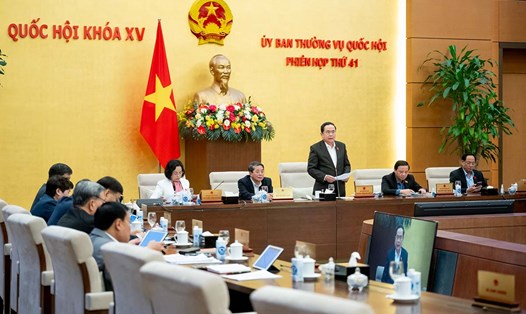On the afternoon of February 6, the National Assembly Standing Committee gave its opinion on the draft Law amending and supplementing a number of articles of the Law on the Organization of the National Assembly. Along with that, it gave its opinion on the draft Resolution of the National Assembly on the organizational structure of the National Assembly's specialized agencies.
Draft resolution of the National Assembly on the number of members of the Standing Committee of the 15th National Assembly (amended); draft resolution of the Standing Committee of the National Assembly on the specific tasks, powers and organizational structure of the National Assembly's specialized agencies.
Chairman of the Law Committee Hoang Thanh Tung briefly presented the draft Law amending and supplementing a number of articles of the Law on Organization of the National Assembly.

Regarding the division of authority between the National Assembly, the Government and agencies in the state apparatus, the only unclear issue is the division between the legislative authority of the National Assembly and the rule-making authority of the Government and other agencies.
To overcome this shortcoming, the Drafting Committee proposes to amend and supplement Article 5 of the Law on Organization of the National Assembly in the direction of more specifically defining the contents that need to be regulated by law and Resolution of the National Assembly.
Provisions are principles and guidelines on the level of detail that should be specified in the law. Accordingly, the law only regulates issues that are stable and have long-term value; specifically regulates contents related to human rights, rights and obligations of citizens, and issues that have a major impact on social life.
Regarding the number, organizational structure and method of regulating the National Assembly's specialized agencies, the Drafting Committee said that the majority of opinions agreed with the drafting of the National Assembly's Resolution on the organizational structure of the National Assembly's specialized agencies.
Accordingly, after the arrangement, the number of specialized agencies of the National Assembly includes the Ethnic Council and 7 Committees.
The National Assembly's specialized agencies are expected to include: the Ethnic Council; the Law and Justice Committee; the Economic and Financial Committee; the Cultural and Social Committee; the National Defense, Security and Foreign Affairs Committee; the Science, Technology and Environment Committee; the Petition and Supervision Committee; and the Delegation Work Committee.
Thus, it is expected that after the arrangement, the National Assembly agencies will have 4 fewer committees than at present due to the merger.
In particular, in the context of reorganizing the state apparatus and requiring innovation in legislative thinking, not rigidly stipulating the number and names of the National Assembly agencies in the Law is appropriate and convenient for continuing to reorganize, adjust, and ensure harmony in the organizational structure with the functions, tasks, and powers of the agencies.

Commenting on this content, Vice Chairman of the National Assembly Tran Quang Phuong suggested that careful research is needed, because the agencies aim to perform highly specialized work, but this does not mean that these agencies are "specialized agencies" of the National Assembly.
Politburo member and National Assembly Chairman Tran Thanh Man also said that the word "expertise" should not be used, but of course these agencies must have expertise to be able to carry out their tasks.
Concluding this content, Vice Chairman of the National Assembly Nguyen Khac Dinh said that the National Assembly Standing Committee agreed to keep the term "National Assembly agency" as in current law.
The Standing Committee of the National Assembly agrees with the principles and contents of the division of authority of the Council and Committees as in the draft Resolution.
Vice Chairman Nguyen Khac Dinh said that the draft law, 3 draft resolutions and accompanying documents are eligible to be submitted to the National Assembly and the National Assembly Standing Committee for consideration and decision.











